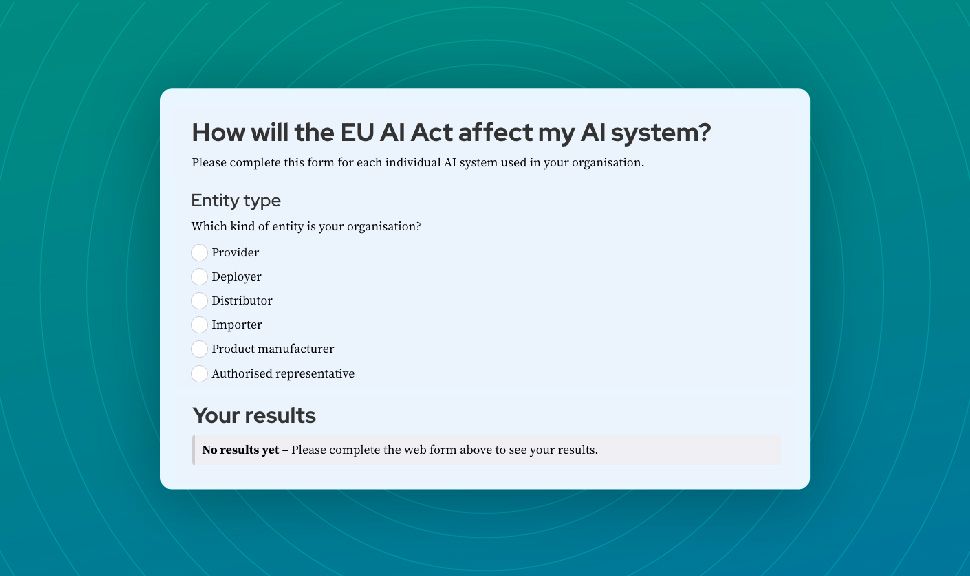EU AI Act Compliance Checker
The EU AI Act introduces new requirements for organisations both within and outside the EU. Use our interactive tool to assess whether your AI system falls under its scope.
For detailed guidance, we recommend contacting us directly. Additional information on EU AI Act enforcement in your country is expected to be available in 2025.

What Are the Risk Categories Defined by the EU AI Act?
The EU AI Act establishes four risk levels for AI systems: unacceptable, high, limited, and minimal or no risk.
• Unacceptable Risk: AI systems that pose a serious threat to safety, livelihoods, or fundamental rights, such as government-led social scoring or toys with harmful voice assistance, are prohibited.
• High Risk: Systems used in critical areas like infrastructure or law enforcement must comply with strict regulations, including risk assessments, data quality standards, documentation, transparency, human oversight, and accuracy.
• Limited Risk: Applications like chatbots must meet transparency requirements to inform users they are interacting with AI, not humans.
• Minimal or No Risk: Examples include video games and spam filters, which can be deployed without restrictions.
This framework aims to balance innovation with the protection of fundamental rights and public safety.
What Measures Does the EU AI Act Implement for SMEs?
The EU AI Act introduces specific provisions to support SMEs and startups, as outlined in Article 55:
• Priority Access to Regulatory Sandboxes: SMEs and EU-based startups meeting eligibility criteria will receive prioritized access to regulatory sandboxes to test and develop AI systems in a controlled environment.
• Awareness and Skills Development: Tailored initiatives will be organized to raise awareness and enhance digital skills specifically for smaller organizations.
• Dedicated Support Channels: Communication channels will be established to provide guidance and address queries from SMEs and startups.
• Involvement in Standards Development: SMEs will be encouraged to actively participate in the development of AI-related standards.
• Reduced Compliance Costs: Conformity assessment fees will be lowered for SMEs and startups, taking into account factors such as their size, development stage, and market demand.
• Ongoing Cost Reviews: The European Commission will regularly evaluate certification and compliance costs for SMEs and startups through transparent consultations and work with Member States to reduce these costs where feasible.
These measures aim to ensure that SMEs and startups can innovate while navigating the EU AI Act’s regulatory landscape efficiently and affordably.
